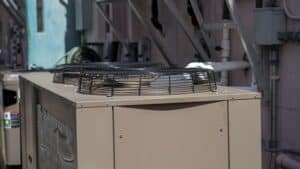If you live in a smaller home or an apartment, your indoor air quality may be compromised. That is, a smaller dwelling can hinder good airflow, simply due to less space.
Also, if you do have pollutants impacting your air, they will be more concentrated in these cramped quarters. An awareness of common hazards to air quality may help you to identify and address these issues while creating a healthier home environment.
Here are ten things that can compromise your apartment’s air quality, and how you can minimize their impact.
1.Circulation
Naturally, a smaller space is going to have less air circulation than a larger one. When air flow is impeded – in this instance, by the size of the dwelling – air quality will suffer. Be proactive if you live in a small apartment by creating better air circulation, including opening windows and installing ceiling fans to move the air around. This helps to remove stagnant air, trapped dust, and other contaminants that are floating around in your home.
2. Ducts
Have you checked out your air ducts lately? Look at them and clear dust, dirt, and droppings that can accumulate over time. Pests use ducts as a means of entering your home, and what they leave behind can compromise the air that you breathe. Check your air ducts regularly and if you encounter dirty ducts, vacuum well and seal up any cracks or gaps that you find.
3. Layout
It may be that the layout of your small home or apartment is the biggest offender when it comes to poor air. Lack of proper ventilation, windows, or the layout of the home can all contribute to air quality.
Bathrooms without windows or fans can be a breeding ground for mold; in small homes, it easily spreads and grows behind the walls and underneath surfaces. A de-humidifier can help to dry out the space, while gradually improving the air in the home. Mold is nothing to mess around with, as it can cause a wide range of respiratory illnesses and infections. If mold is a problem in your apartment, contact an abatement specialist to resolve the issue right away.
4. Humidity
Similarly, humidity can take a toll on air quality in a smaller home or dwelling. If the humidity is too low, you can become sick or experience dry skin; if the humidity is too high, you are at-risk for mold, mildew, and dust mites- which love damp, swampy spaces, by the way. They can also damage wood furniture, cabinets and even the home’s structural components like wooden beams and supports. Humidity holds on to pollutants, contaminants, and allergens, so dehumidify as needed.
5. Dust
Speaking of dust mites, these microscopic pests thrive in humid places- they are everywhere! If you live in a small apartment, you will find more mites due to the space concentration. Where there is dust, there will be mites. Routine sweeping, dusting, and vacuuming helps, but you must be vigilant to improve air quality in these situations.
6. HVAC
How is your HVAC system? Older units can blow dust, mold spores, and allergens into your apartment. Furthermore, HVAC installation issues could cause unhealthy air to be blown in and circulated around your home. The best defense is annual HVAC inspections and swift maintenance when there is an issue – talk to your landlord or maintenance person to find out more.

7.Mold
The topic of mold and mildew keeps coming up- these allergens can lurk anywhere! Mold and mildew spores significantly impair and compromise air quality. Apartment dwellers have the added challenge of trying to combat mold and mildew that could be in other units, and that easily spread into their homes, too. Preventing the growth of mold is key to preserving healthy air quality.
8.Pollutants
‘Pollutant’ is a broad term that is used to describe a lot of things that can negatively impact air quality. Some common toxins that compromise your air are in the products that you use every day. Cosmetics, cleaning supplies, even the carpeting on the floor contain chemicals that pollute and contaminate your air. While it is not feasible to remove their impact entirely, you can be more selective about the brands and products that you bring home.
Furthermore, the materials used in the apartment or home itself- I.e., paint, varnish, wood- also impacts the air that you breathe. Concerned about your living situation? It can help to refresh your dwelling; consider using painting contractors in the area to enhance and improve air quality.

9.Combustion
It makes sense that if you have a ventilation problem, combustion contaminants like carbon monoxide and smoke will linger. You may even find that, due to the smaller space, you have higher levels of these pollutants than those living in larger dwellings. Gas emissions from heaters or appliances can contribute to poor air quality, too. To fight combustion pollutants, you need to improve ventilation.
10.People
People are also guilty of dragging in pollutants and allergens- which you then need to remove from your home. Dirt and dust easily travel on clothing and shoes- and on your pets, too! Also, remember to keep an eye on the weather forecast to determine low air quality days and keep your windows closed during these periods.
Improve the air quality in your small home or apartment. Contact the pros- that know- to learn more.
Take steps to improve the air quality in your home or apartment. Whether that involves a new ceiling fan, an HVAC inspection, or just a good cleaning, consult with professionals today and create a healthier home.

Recent Comments